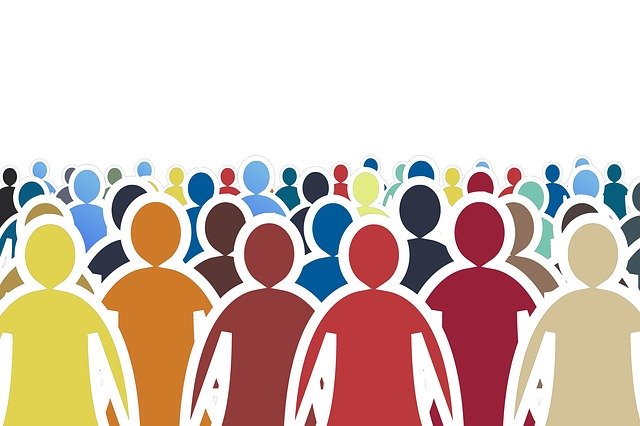By Glenn Laverack, PhD
Here are ten things we must do better in health promotion during the COVID-19 outbreak:
1. We must better protect frontline workers.
Frontline workers including health professionals in clinical and community settings, carers at home and in residencies and people whose work brings them into regular contact with the public must be provided with guidelines on the use of and with the supply of sufficient and proper Personal Protective Equipment (PPE).
2. We must better shield vulnerable people in society.

The shielding of vulnerable people in society from COVID-19 must be a priority and includes the elderly especially in residencies, refugees and migrants, the socially isolated, the homeless, the mentally ill and women and children at risk from domestic violence. Shielding includes social distancing and isolation, the use of PPE, facilities for hygiene and social support services.
3. We must better use social science to understand the complexity of societies.
Changing individual and collective behaviours involves complex social processes and requires insights that take into account local perspectives. Anthropological studies require in-depth and long term inputs producing ‘thick and dense’ accounts that are difficult to translate into practical recommendations. In an outbreak, new information is required quickly and it is the application of social science techniques that can best meet the requirements of rapidly changing circumstances.
4. We must better respect the culture and needs of communities.
A culturally competent practice works with communities in a meaningful way that pays attention to shared needs and perceptions of health. This mutual understanding provides a foundation for empathy and a respect for the culture, ethnic diversity and the self-determination of communities so that their needs are identified and placed at the centre of health promotion programs.
5. We must better work with communities in slum settings.
Slum conditions include poor sanitation and a high population density that deny the opportunity for proper hygiene and social distancing. The local administrative, enforcement authorities, health agencies and communities must work together but small gains have been made with no clear strategy for how best to cooperate. The sense of community solidarity in some poor urban communities does offer an opportunity for better engagement and communication in health promotion programs.
6. We must better strengthen social networks to support communities.
The usual social support network of friends and family has been broken during COVID19 and both urban and rural communities have had to better help one another. However, altruism has not been universal, with some localities being better organised and more supportive than others. The pre-planning for, and the systematic support of social networks is crucial to provide a link between the people affected and the delivery of health and social services.
7. We must better support the mobilization of volunteers to help other people.
The mobilization of volunteers by non-government agencies has provided much needed support to deliver essential services. Volunteers can provide a valuable network of local contacts and many community-based organisations depend on the efforts of volunteers who do valuable day-to-day activities. The recognition of this work is crucial to continue to provide services that government organisations cannot do during an outbreak including supporting the most vulnerable and for the distribution of essential items.
8. We must better use our common sense and not rely on weak “evidence”.
The “evidence” of what works in health promotion is often weak, contradictory or non-existent. We must use our common sense and experience as a guide of what will work or will not work during the COVID19 outbreak. The best scientific advise must be a combination of the most reliable evidence and a professional consensus of what works. Trust your professional instincts.
9. We must better support non-COVID19 health promotion issues.
Health promotion activities must be maintained during a confinement to support a healthy physical, mental and spiritual lifestyle. These activities include messaging about healthy eating and activity levels, stress reduction and safe alcohol and tobacco use at home. Ongoing prevention programs such as vaccination and screening and services to cope with stress and domestic violence should also be maintained. There is a real risk that morbidity and mortality due to non-pandemic health issues will be significantly higher than those directly related to COVID19.
10. We must better involve communities in the COVID19 outbreak response.
Communities must be an intrinsic part of the COVID19 outbreak response including during any exit strategy and in order to reduce resistance to the changes imposed by governments and to maintain preventive measures. Not to involve communities is questionable and the reasons for not doing so must be analysed including any assumptions about weak local competencies, the lack of trust between government and civil society and the restriction of human rights.
Glenn Laverack, Visiting Professor, Department of Sociology and Social Research, University of Trento, Italy
- China COVID-19: Wuhan ordered to test all 11 million residents
- COVID-19 treatment: Feds announce the allocation plan for the drug remdesivir
- How COVID-19 kills: What is ‘cytokine storm’?
- Malaysia COVID-19: Officials report lowest daily case count ever
- Chile COVID-19: Growing demand on hospitals, ‘The next few weeks will be the most difficult’
- Mexico COVID-19 update: Cases in children, pregnant women and comorbidities
- COVID-19: Asymptomatic spread can be a successful evolutionary strategy

